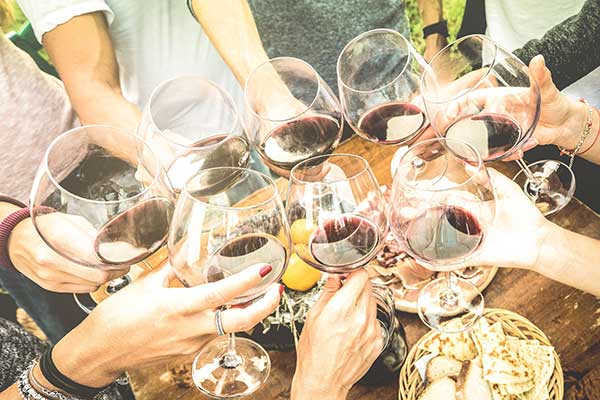Why We Love Wine
By Ezekiel Hampton, Wine Educator
As with anything that stimulates our senses, it is not hard to find the romance of wine much in the way we do with music, art, books, film, and food. Its evocation can reach beyond the plane of tangibility by unearthing the subjective and the subconscious in us in surprising and unique ways. Lamar Engel, founder of The Wine Militia, has described this experience as ‘memory rapture,’ and if you are lucky enough to have experienced it yourself, your life can change how you interpret such moments and similar ones moving forward.
It has been argued that the sense of smell is the most emotional sense in that it connects more deeply with something meaningful. Whether it’s the clothes in the closet of a loved one who’s passed away or the sudden remembrance of a particular flower you pass by that used to grow in your backyard when you were a toddler, something that connects us to an earlier time can be an emotional experience.
For me, some wines have stirred that ravenous nostalgia that I often indulge in because they have brought out certain smells, and what I interpret the taste of those smells to be, in such an uncanny way. The first time I tried a Napa Valley Cabernet Sauvignon from the 1970’s, I was astonished that I remembered the smell of my childhood best friend’s living room carpet, where we played Nintendo and watched football. I didn’t consciously remember it until then, and I still can’t explain exactly what that smell is. The Cabernet was complex and full of medicinal, dusty, and savory herb notes interwoven with matured, yet subtle, fruit notes of blackberry, raspberry, and plum. The acidity and structure were there, but there was a wobbliness that hinted it was fading away much like the sound of ambient and avant-garde composer William Basinski, who comprised his recordings of tape loops (ref: The Disintegration Loops) that gradually deteriorated each time they passed the tape head. The sensation of listening to compositions on their original recordings die out as they’re being played evokes the same heightened emotion I felt drinking the wine that could never be drunk again. There was something about this wine that tasted sacred and reverent, much in the way that a divinely inspired composition by Arvo Pärt would sound (ref: Für Alina).
As much as I revel in the sensory indulgences and the romantic thoughts that wine can bring to its drinker, I love wine mostly for its ability to act as a facilitator for fellowship. Often in my life, new friendships have been forged and old friendships from young years rekindled over the collective experience with a fine wine. Personally, I believe the relational tapestry of our lives hold more value than any sensory experience that can tease its extremely temporary moments of satisfaction before withdrawing regardless of your devotion to it. The maturity, the complexity, the structure, and the general personality of the wine serve as a great metaphor for the nuances of our lives and our connectedness to those who inhabit our lives, which is why it feels so wonderful to enjoy, celebrate, and learn from the diversity of the wine that exists on our planet.

